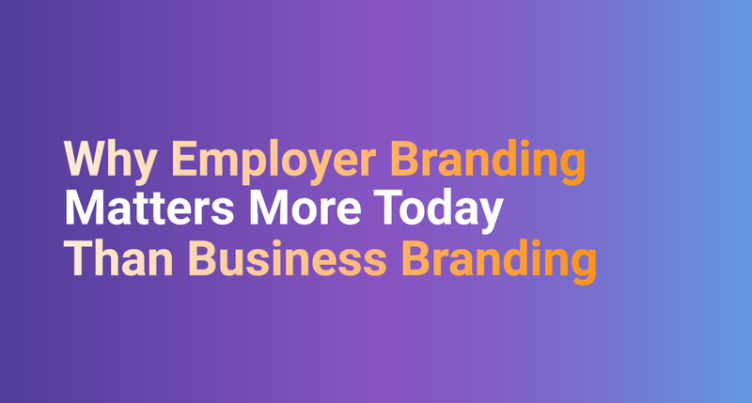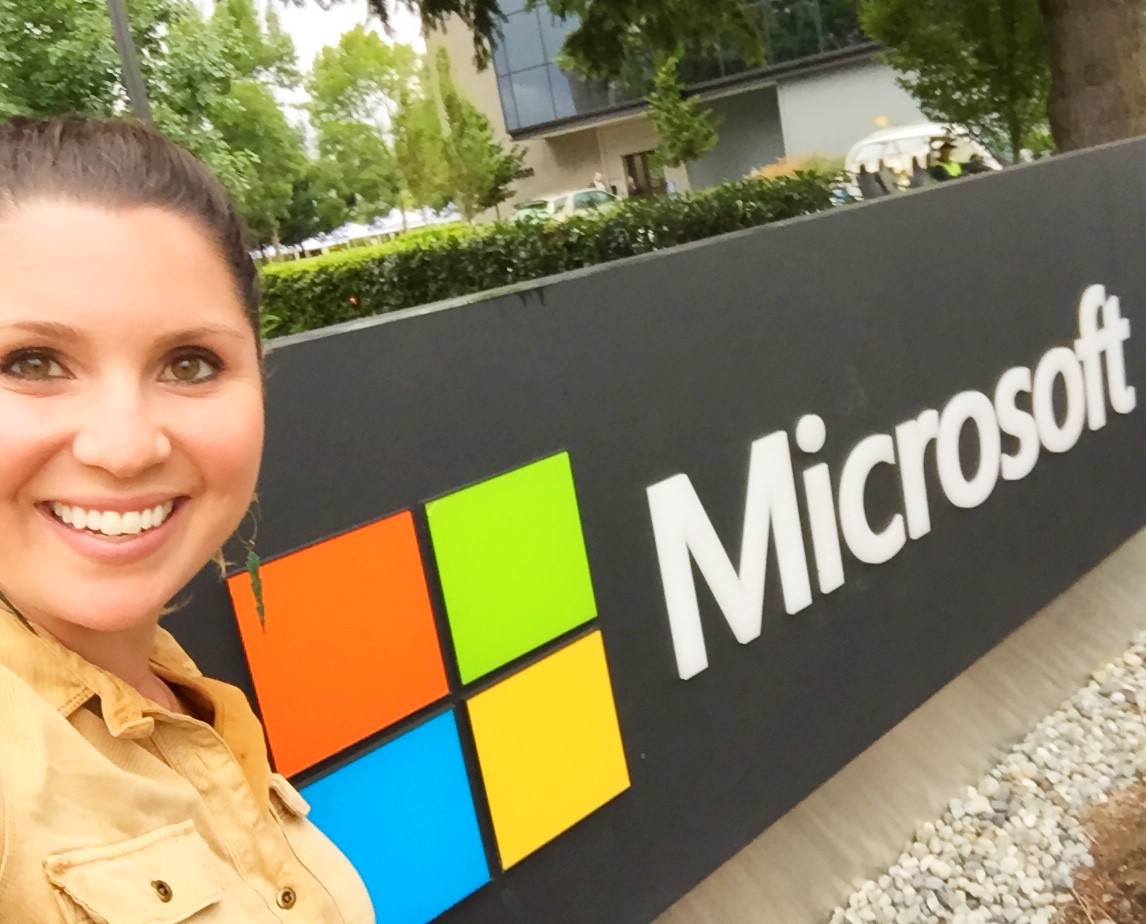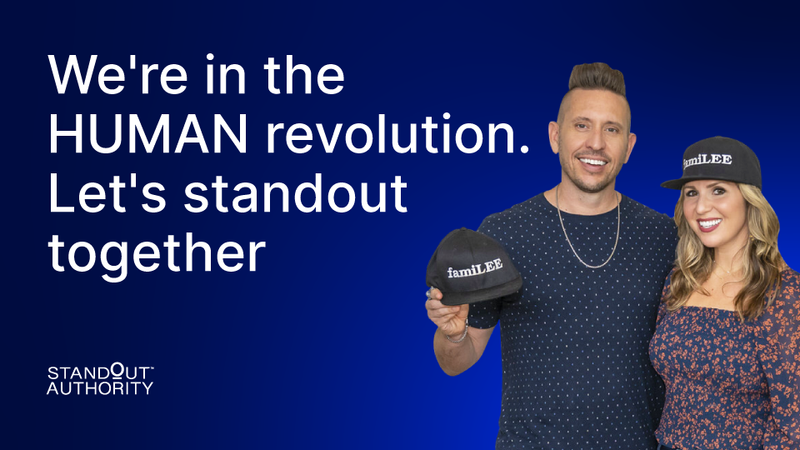
With so much focus on business branding, it can be easy to forget just how important employer branding is, Your reputation as an employer is essential for creating a high-performing team and recruiting and retaining talent.
According to Glassdoor, 86% of people research a company’s ratings and reviews before applying. That same survey reports that 92% of employees would consider a job switch if offered a role at a company with a better reputation which means that employer branding is huge when it comes to building the best team possible. And guess what, a great team leads to high profit and happy customers.
What is Employer Branding?
Employer branding is how your employees and the entire workforce view you as an employer. And that entire workforce may be your customers, investors, family, friends, you name it.
In our post COVID, remote work world, employer branding has never been more important. People are leaving companies quickly and really assessing what a company can offer them beyond a good salary. So it’s time to think about your employer brand through a marketing lens. Think about how you market your company’s jobs, customer wins, employee successes and more to those on the outside, as well as internal staff.
What is the Difference Between Employer Branding and Business Branding?
Even though employer branding and business branding both follow a similar approach of shaping the reputation of your company, there’s a big difference between the two.
➡️ Business branding focuses on your company’s mission, value proposition, core messaging and offerings. Through our business brand we manage our reputation, market our offerings, draw in sales and more. It’s the heart of our why and DNA of the company.
➡️ Employer branding is all about your company’s reputation among the entire workforce: What’s it like to work for your company? What are your company’s leadership values? What benefits do you provide employees? What kind of work environment does your company cultivate?

To better understand the difference between employer branding and business branding, let me tell you a little story…
When I was searching for jobs during my MBA, I was looking at all the major CPG companies. One of the companies is a major producer of beauty and skincare. They have amazing commercials, stellar products that everyone loves and an excellent reputation for customer service.
The company has this great reputation due to fantastic business branding and marketing. As I was applying for this company, they asked me to take several tests to help qualify me for an interview. Guess what?!
I HATE standardized tests. I do not only perform poorly on them, but they don’t showcase my marketing skills in any way. This was a MAJOR turn-off for me. The employer brand showed me that they value quantitative results more than industry expertise and real human conversations. That I was a number versus a real person. I didn’t like that rigid structure one bit. I wasn’t invited to interview and frankly, never looked at that company again. And guess what, THEIR LOSS! I chose to work at Microsoft where my skills, personality and drive were valued way more than results on some test.
No matter how good a business brand may be, people are looking at your company’s values, mission, culture, leadership approach, employee opportunities, interview setup, and more. It will either attract or repel people so be extra mindful of the message you’re putting out there.
Why Employer Branding Matters More Today
It’s no secret that COVID-19 has had a major impact on the workforce. The pandemic triggered “The Great Resignation” and in 2021 alone, 47.8 million workers quit their jobs. Now more than ever before, people are more mindful of how their employers are supporting them. Many employees are seeking jobs that provide mental health support, flexibility, hybrid workplaces and more than anything, company’s whose values align with their own.
Your company must effectively communicate values, culture, leadership AND your offer so it attracts the right people who will then get you the right customers and wins. Employer branding isn’t just good for talent, it’s great for customers too. Customers want to know they’re working with company’s that value their employees.
If you’re still not sold on the importance of cultivating a positive employer brand, let’s look at the numbers from LinkedIn’s Connie Chen. Everything below is about the employer brand and has direct impact on your bottom line.

3 Easy Tips to Elevate Your Employer Brand
1. Develop an Employee Value Proposition (EVP)
Your EVP showcases your company’s mission, values, and culture. This is what gives people a reason to want to work for you. Your EVP should be a well-defined story. This story should be true to your company and the people within your company.
Example: LinkedIn’s EVP is articulated in the #LinkedInLife slogan, which encourages employees to post all about the company culture across the social media channel. The company has diverse benefits divided into categories such as health, family, passion, must-haves, and extras. This is a comprehensive benefits and compensation package, covering everything from childcare, eldercare, and pet care subsidies to education reimbursement and life insurance. Employees get a “paid shutdown” at the end of the year, in which the company closes for a week to celebrate.
2. Empower People to Share Their Voice and Company Wins Online
Employer branding shouldn’t just talk the talk, you need to walk the walk. This means actively creating a positive environment for the people at your company, by celebrating and uplifting these people. By doing so, you’re setting a positive example. Showcase your employees online (perhaps via Linkedin), and give them the chance to showcase all that they’ve accomplished in their role.
Example: My Gartner CMO when I worked there and mentor, Kelly Hopping, just did a great job of this in a recent post.
3. Prioritize Mental Health and Well-Being
People are the core of your business. And people deserve to have their mental well-being prioritized. As shown above, people want time for the kids, personal lives, therapy AND work. The days of the hustle culture and giving our lives to a company are OUT. The more your company can showcase that you prioritize mental health and well-being, the better.
Example: PwC
PwC recently announced a company-wide initiative, “Be well, work well”. Their prioritizing the well-being of PwC employees across four dimensions: physical, emotional, mental, and spiritual health. They have benefits such as access to mental health coaching, discounted gym memberships, a rewards program, and even counseling to quit smoking. PwC offers tons of other benefits to its employees, including a student loan paydown program and caregiver support. Mentor Moms connects new mothers with PwC working moms for guidance and coaching.
In conclusion, when your employees feel great about your company, your business brand will accelerate in ways never imagined. Employer branding matters…A LOT. Think about how your employees can not only feel great, but confident in sharing their company experience. And remember to always lead by example.
If you’re wondering how to showcase your employer brand through the voices of your organization, reach out to me. I’d love to support you!
